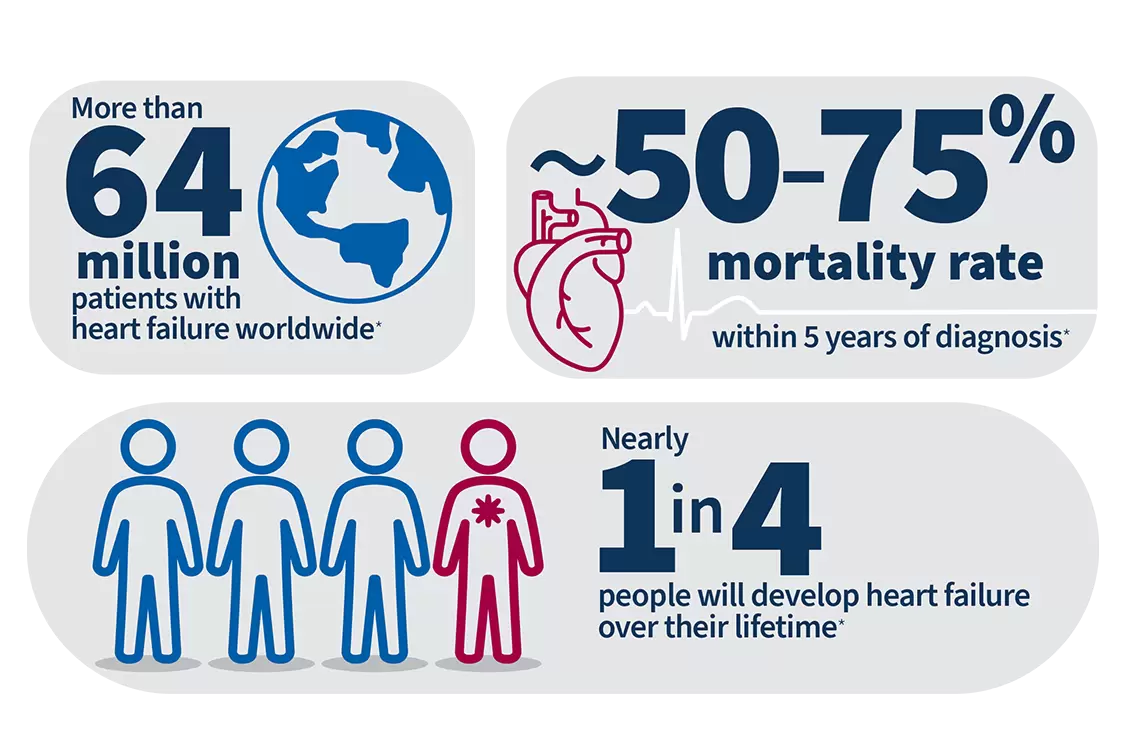Acute Decompensated Heart Failure

Overview
Heart failure is a widespread health concern affecting approximately 64 million people around the world; mortality is seen at a rate of 50 to 75% within five years of diagnosis.1-2 Lifetime risk has also increased, up to 24%, suggesting nearly one in four people will develop heart failure over their lifetime.3 When a patient is decompensating, it is important for the heart team to identify this early and implement a strategy to stop hemodynamic instability and hypoperfusion.
ADHF Resources for Health Care Professionals
Education Library
References
Savarese, G., et al. (2022). Global burden of heart failure: a comprehensive and updated review of epidemiology. Cardiovasc Res, 00, 1–16. https://doi.org/10.1093/cvr/cvac013
Bragazzi, N. L., et al. (2021). Burden of heart failure and underlying causes in 195 countries and territories from 1990 to 2017. European Journal of Preventive Cardiology, 28(15), 1682–1690. doi:10.1093/eurjpc/zwaa147
- Iapoce, C. (2023). HFSA: Nearly 1 in 4 US adults will develop heart failure in their lifetime. HCP Live. https://www.hcplive.com/view/hfsa-nearly-1-4-us-adults-develop-heart-failure-lifetime
NPS-4135